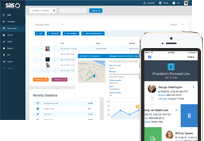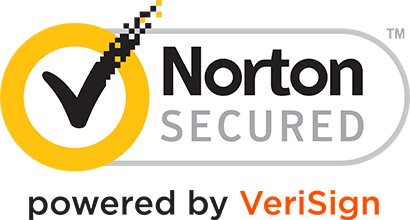- Log In
- Support
- Company
- Contact Us
- Live answers @ 1-888-532-4794
Demystifying the process of hiring a new employee: The interview

As a small business owner, you have a lot to juggle. Unfortunately, this means you may have a limited amount of time to interview prospective employees. You’ll get some great employees and some not so great employees, and you will have to waste even more time getting rid of the bad apples. Not placing enough importance on the screening process could also mean that you wake up in a foreign country with no memory of the last twenty-four hours, and a painful scar right where your kidney should be.
If you want to run a successful business, and get to keep all of your internal organs intact, then a proper hiring process is critical. Your employees are the people that represent your brand, build customer loyalty and retention, and that ultimately make your company money. You are investing in their potential, so you need to be certain that you choose the right ones. Not only that, but choosing the wrong ones can cost you. Did you know that as much as 80% of employee turnover is due to bad hiring decisions? Or that one bad hire can equate to 30% of that individual’s first-year potential earnings?
So, what is the process of hiring a new employee? And how can you ensure that you locate the most viable new employees who will help your business remain on an upward trend? Here’s a great road-map to follow:
First Things First: Craft the Perfect Job Description
The first step towards hiring anyone is creating a comprehensive job description. If you don’t clearly define the parameters of a particular position, you aren’t going to attract the ideal candidate. So what makes a good job description? A detailed description will contain a variety of points, including but not limited to:
- A basic description that includes primary job functions
- Characteristics and qualifications that the perfect candidate will possess, including required skills, desired skills (those that aren’t entirely necessary), education level, and years of experience
- Type of position – e.g. contract work, temp to perm, permanent placement, and full or part-time status
- If travel is required, note percentage of time, as well as domestic or international travel
- Discuss what makes the job challenging and worthwhile, and include potential for growth and continuing education
Next Up: Collect Resumes
After you’ve posted the position online and in industry-specific publications, you should see resumes begin to pour in. Now it’s time to filter through them, weeding out those whose education or experience isn’t in the ballpark.
Look Closely at the History
You might be surprised to learn that most candidates will be reluctant to include a detailed description of their stint at San Quentin prison on their resume. No, sadly, you may never see “shanking” listed under their skills. Sure, a background check will let you know about any major deal breakers right away – but you’re not there yet. That means you’ll have to read between the lines when reviewing resumes. First, try to look for patterns. Was this person successful in college (think GPA), and then had limited success afterward? Does this person have a history of working well with employers (think number of years at each job)? Was this person involved in team-related activities, or largely solo work? Everyone wants to put his or her best foot forward. So you’ll have to infer any missteps by fine-tooth combing their work history. The last thing you want to do is hire someone who is only dedicated enough to stick around until the next decent opportunity comes along.
1-800 CALL ME: Schedule Phone Screenings
Contemplate the following when placing calls. What key elements are you looking for in a new hire? What qualities are pluses and what missing pieces can you overlook? For example, let’s say you’re hoping for an assistant with in-depth knowledge of PowerPoint, and the candidate you are speaking with is only so-so at PowerPoint, but happens to be bilingual. Is that something you could work with? Don’t settle for less than the position requires, but don’t instantly discount seemingly exceptional candidates who may be short a technicality or two.
Compile a list of questions that get right to the point. Remember, everyone’s time is valuable. That means you can’t afford to beat around the bush. Here are a few examples that might be useful for the employer and for a job candidate wondering what to expect in a phone screen interview:
- How many years of experience do you have in this type of position?
- Tell me about your educational background and as well as professional certifications that you hold (if applicable).
- Are you more comfortable working individually or as part of a team?
- Why are you leaving your current position?
- What are your salary requirements?
These basics will give you a good feel for the candidate’s qualifications as well as his or her level of professionalism on the phone. You’d be surprised at how many people don’t know how to have a conversation! Ask for 3 professional references, and don’t forget to mention that if a position is extended to the candidate, it may be necessary to submit to a background check and/or drug screen, depending on your company’s policy. If there is currently no formal policy in place, now is the time to write one. The benefits of background checks are invaluable.
During the Interview: Make or Break Time
This is the moment you’ve been waiting for, the opportunity to sit across from the candidate and fire away with your inquiry. So what should you ask an employee during a face to face interview? You should already have a list of questions you asked during the phone screen. Now it’s time to broaden the scope and get a better idea of what makes the interviewee tick. You’ll want to start with a little small talk to break the ice, so to speak, and help the candidate to feel at ease. Then begin the process, going from simple to in-depth questions, and moving on if the candidate seems to be stuck. These are a good place to start:
- What interests you about Company X and this position?
- What do you hope to gain from this position?
- Tell me about a time when you had to take on a large project or task. Was the project successful? If not, what could you do differently?
- What accomplishments are you most proud of, both personally and professionally?
- Tell me about a time when you had a disagreement with a colleague. What did you do to resolve the conflict? How did it turn out?
- Tell me about a time when you had a difficult time working with a particular customer or client. What did you do to resolve the conflict? Was the customer happy in the end?
- No one enjoys being critiqued. Tell me how you handle constructive criticism.
- What is your comfort level in working as part of a group? Would you classify yourself as a follower or a leader? Please provide an example of a positive group experience.
- What is your philosophy on having a “clean desk” when you leave for the day? How do you determine what can wait, and what can’t?
- Describe your organizational style.
- Would you say that you budget time well?
- What is the biggest mistake you have ever made at work, and what steps did you take to fix it?
- What do you feel is your best character trait? What is your worst?
- What do you feel is the most significant attribute you would bring to this position?
- What are some of your hobbies and interests outside of work?
- Where do you see yourself in 5 years?
You might want to supplement the interview with proficiency exams, such as those for software programs, or a personality inventory, to see if the candidate’s style appears to match your company’s culture. Be sure to explain your management style, expectations of the person in this role, your commitment to employees’ work/life balance, salary range, and additional benefits such as medical, childcare, legal services, etc.
It’s also a good idea to consider the 7 “C’s” as you search for the best man, or woman, for the job. Candidates should be competent and capable, compatible with your team, share a commitment to excellence, and have strength of character, among other important ideals. Are they responsible? How will they get along with your clients? Do they have a willingness to learn? These are all things you will find out when the candidate is sitting right in front of you.
Keep in mind, that saying about first impressions is ubiquitous for a reason: because it’s true. Candidates should be well groomed and articulate, provide thoughtful answers to interview questions, mention a few key points about the company to show they’ve done their research, express a desire to know more, and have a few questions of their own prepared for you. Be watchful for those who appear to be “reaching” for answers, whose verbal description of their experience doesn’t seem to match their resume, those who have an overly exaggerated demeanor or whose personality doesn’t look like it would mesh with your existing team.
Your demeanor and sense of decorum is as crucial, if not more so, than the candidate’s is. While the candidate *might* represent your company at some point, you DO represent your company. Make it look good.
Some dos and don’ts for the interviewer:
- Do maintain eye contact and look for your candidate to do the same.
- Do talk a little about yourself. Show them that you’re human.
- Don’t talk too much. Give the interviewee enough time to provide the comprehensive answers you need.
- Don’t forget to take notes so you remember who is who (easier if you take notes on the back of the candidate’s resume).
- Do use your friendly voice. It’s no fun being interviewed by a Grinch.
- Don’t forget to smile!
- At the close of the interview, do offer your card and let the candidate know that you are available should he or she have any further questions about the company or position.
The Finish Line: They’re Hired
Now that the hard part is over, it’s time to review your chicken scratch and decide just who will be the next member of your amazing team. Interviewing can be complicated. It definitely takes some advanced preparation, but it’s all in the interest of helping you find “the one” and saving you and your company from the headache of firing and rehiring down the road.
Categories
- Advice (32)
- Answering Service 101 (18)
- Best Practices (10)
- Call Center Jobs (6)
- Call Center Software (20)
- Comparison (2)
- Customer Service (30)
- Funny (31)
- Holidays (19)
- Industry Hacks (19)
- Infographics (53)
- International (1)
- Medical (8)
- News (12)
- Phone Etiquette (2)
- Phones (14)
- Pricing (8)
- Quizzes (3)
- Receptionist (11)
- SAS Products (29)
- Scripting (4)
- Services (5)
- Small Business (25)
- Starting Up (7)
- Tips and Tricks (19)
- Uncategorized (1)
- Videos (19)
- Workplace (6)
Recently writen
- Call Center Script Best Practices: Advanced Script Block Tips to Optimize Your Answering Service
- January 2025 Release Notes – Adjustments to Call Details Timeline, New Scripting Updates, Live Transcription, and more!
- April 2024 Release Notes – Voicemail Greetings, Ability to Access Websites With a Username and Password, and more!
- March 2024 Release Notes – New Add-On, Settings Revamp, and more!
Follow Us
How about a demo?
We'll show you how our web portal works and answer any questions you have about SAS.
Schedule a demo







